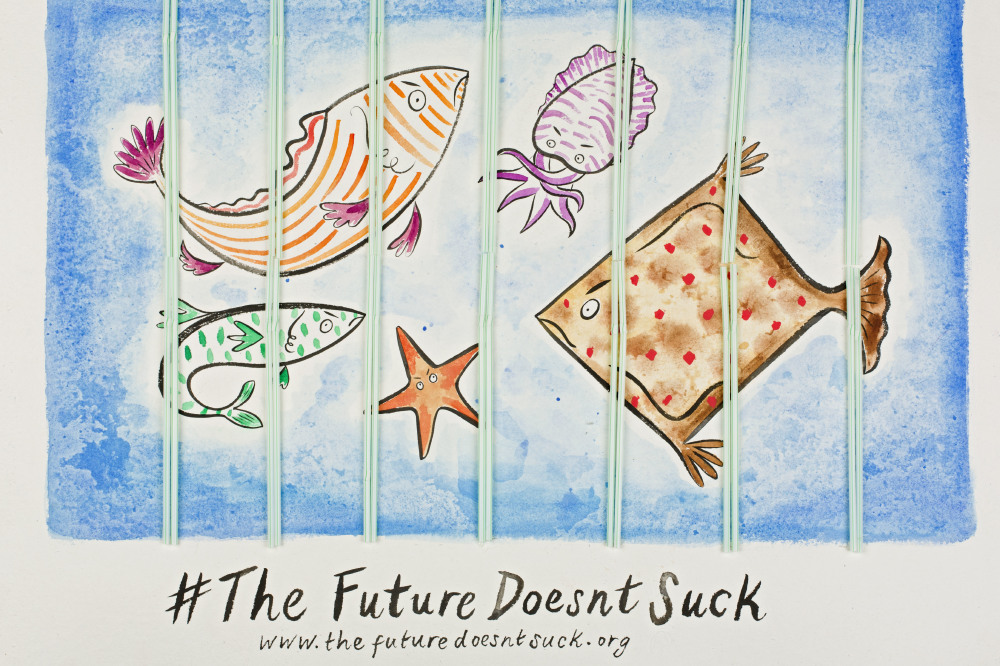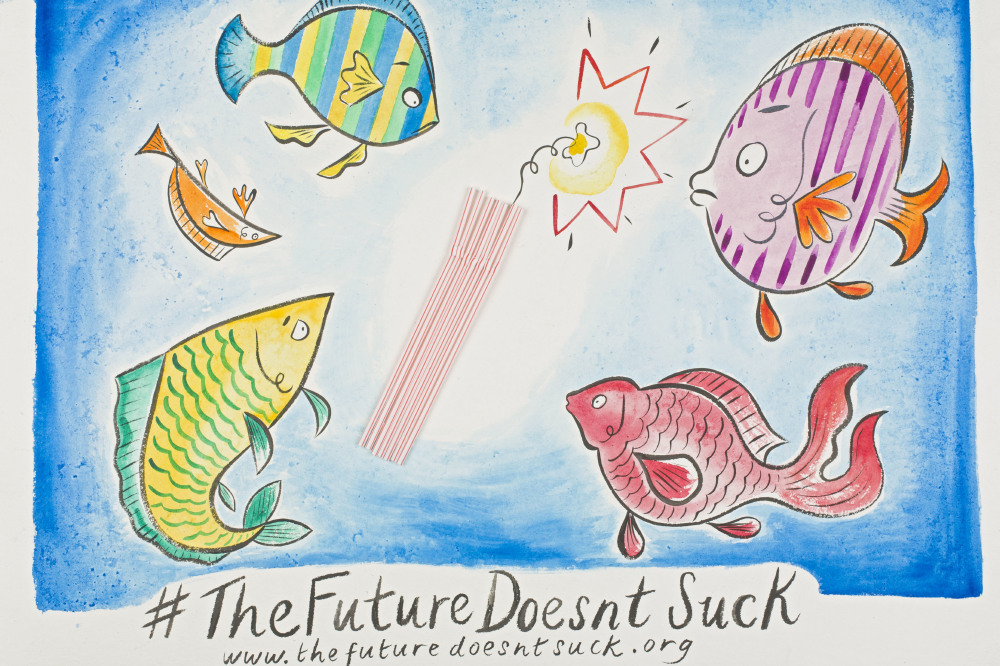There are plenty of reasons we should be fighting to save our ocean, and in a political climate where it seems little is done to ensure that life under the water is looked after, we've got five fantastic tips to ensure we can all do our part.

We all need to fight to save our sea life!
1. Scrap single-use water bottles – Forever!
One of the first and most obvious steps to saving our seas, is to ditch the single-use water bottles, and invest in one that you can use every day. The longer lasting water bottles don’t cost a fortune, and you’re saving money in the long run because you’re not spending £1 every time you’re thirsty. An estimated 12.7 million tonnes1 of plastic, including those ‘convenient’ plastic bottles, end up in our ocean each year. There are loads of stainless steel options on offer from the likes of Amazon or One Green Bottle. Top tip: Add a little fresh mint or lemon to your bottle at the start of each day!
2. Embrace your inner bag-lady
With all of us becoming more conscious about how we reduce, re-use and recycle, it’s border-line embarrassing to ask the cashier for a plastic bag at your local supermarket these days…. But we still do. Unfortunately, because plastic bags are so flimsy and light-weight, they fly around very easily and often land up in the sea (and even streams, rivers and dams). In addition to this, they’re very tricky to recycle, so just a bad idea altogether. The solution is pretty straight forward…stop using them! Carrying around a few bags-for- life or canvas bags is tote-ally doable, it’s just about remembering to do so before you hop off to your weekly shop. If you drive, pop some in the boot of your car, and if not, keep them close to your door so you can see them on your way out.
3. Say no to straws so the future doesn’t suck
We know, we know, drinking your well-deserved daiquiri from a straw is rather appealing… You don’t mess up your lip gloss, and it’s easier to sip on it that way, but at what expense? They’re too lightweight to recycle and they almost always land up in the ocean. An estimated 71% of seabirds and 30% of turtles have been found with plastics in their stomachs, and straws are a major part of the problem. Also, those revolutionary “compostable” staws, are not all what they seem. They’re only compostable if we dispose of them correctly (which we don’t), and if there is an industrial composting facility nearby – so rather steer clear and just say no! Brands like BACARDÍ and the Lonely Whale Foundation have recently set up initiatives to remove 50 million single-use plastic straws from the capital this summer, to ensure #TheFutureDoesntSuck. It doesn’t cost a cent to join the movement and sea lovers can pledge their support for a strawless ocean here: www.thefuturedoesntsuck.org.

4. Support our fish loving friends
There are several really good charities that are dedicated to saving our seas – and you can get involved too. You don’t always need to live close to the ocean to make a difference, you just need to do a bit of research. Whether you volunteer to pick up plastic in your local community, or simply donate to an ocean-related cause, everyone can take small steps to make a big change.
5. Don’t be a beach about it
It seems like a no-brainer, but it’s often still surprising to see the state that grown adults will leave a beach (or park….or music festival) in. It’s something we were taught as kids, “leave the room as you found it”, and it’s pretty much the same principal for nature. Whether you’re on holiday in Majorca, or camping in the Lake District, pick up after yourselves and leave the grounds as you found them. If you’re planning a picnic, remember bin bags, and dispose of (and recycle) any unnecessary plastic packaging at home before you arrive. This will make cleaning up that much easier when you leave. Start thinking about other ways you can reduce your plastic use in general – scrap the plastic straws, buy biodegradable cotton buds, and keep proper cutlery at your desk instead of the daily plastic freebies.
Get to know your Nemo’s from your Dory’s Because of climate change, together with unsustainable fishing, and a lack of proper habitat, certain fish populations are being depleted and it’s not looking good. It’s up to us to be that much more aware about the different fish we eat, and where exactly we get that fish from. Have a look at the Marine Conservation Society online, where you can find ‘Good Fish Guides’, and educate yourself on the most sustainable fish (green rated), oppose to the least sustainable (red rated). Every purchase makes a difference, and you can enjoy your Mackerel guilt-free!

-

